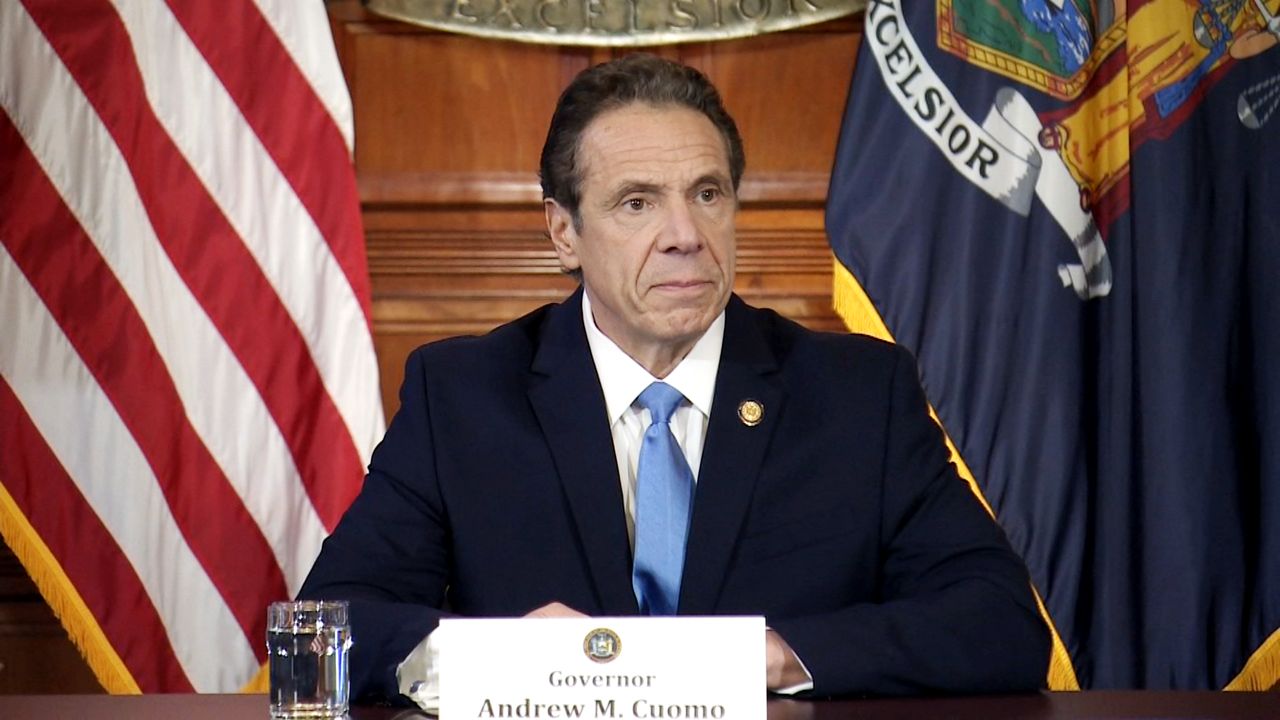After weeks of PowerPoint-filled press conferences; almost daily hits on national television; Red Room appearances by two of his three daughters; tiny but tantalizing glimpses into Cuomo family dynamics; and at least one online love letter, it’s difficult to find anyone but hardcore Andrew Cuomo-haters who have critical words for New York’s ubiquitous governor.
But that may soon change as budget negotiations get heated.
On Monday, the governor made it clear that he still wants lawmakers to return to Albany to pass a budget by April 1, and that the budget should include many of the priorities they had been negotiating in the weeks prior to the pandemic.
The inclusion of complex policies that have eluded lawmakers in the past, like marijuana legalization, as well as highly politicized issues like bail reform, has elicited words of caution from Assembly Minority Leader Will Barclay.
“The state needs a bare-bones approach to the budget,” he argued, “one that addresses the needs of our healthcare system and provides relief to business on the brink of disaster."
While Barclay commended the governor for his leadership during the current crisis, he simultaneously called him out for demanding of Congress precisely what he will not provide to the people of New York.
“The governor has called for a focused, no-pork federal relief bill from Congress. He should follow his own advice in the final state budget,” said Barclay.
On the other end of the political spectrum, Michael Kink of the Strong Economy for All Coalition, also offered qualified praise.
“Governor Cuomo is doing a fantastic job responding to the pandemic -- no question about it,” said Kink. “But his response would be even stronger if it were fueled by an emergency tax on billionaires and multimillionaires. This "moment" calls for an end to Cuomo's prior austerity budgeting approach.”
The governor doesn’t see it that way. Or hasn’t agreed with that approach in the recent past.
Though that could change. In an interview with the Wall Street Journal, the state’s budget director Robert Mujica estimated that state revenues could fall by as much as $15 billion, which is $8 billion more than the Comptroller’s worst-case-scenario estimate from last week.
“If the governor called on the super wealthy to get out of their emergency bunkers and Hamptons hideaways and contribute their fair share to the state budget in this time of need, he'd win even more acclaim than he's getting now,” said Kink.
Kink and others including groups like NYSUT, UUP and the Fiscal Policy Institute argue that a tax on the rich could alleviate pressure on the state’s coffers.
Without such a call, Kink says the governor will have to impose big cuts to healthcare, education and social services “just when those sectors need a boost in funding to respond to growing needs.”
Whatever he decides to do, the governor is in a very good position to do it.
One Albany source says Cuomo, who already holds most of the cards during the budget process, has even more power now that his national profile has been raised: “The legislature can’t really say now ‘we’re not going to do a budget.' That’s one lever we have that’s off the table.”
The source questioned the governor’s commitment to the cuts proposed by the Medicaid Redesign Team II.
“What’s amazing is that the governor is still fighting with House members over federal money. The MRT process was done too quickly, and yet he’s invested in their proposed cuts, while at the same time putting the state’s $6 billion of federal relief at risk,” he stated.
Budget negotiations are continuing in spite of the limitations spurred by the pandemic.



